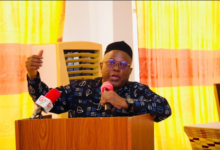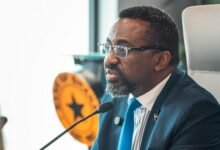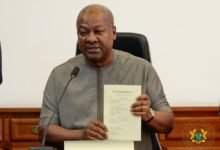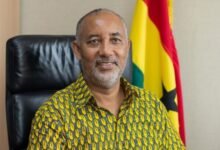Workshop to kick-start GPSNP opens in A/R

A 4-day sensitisation workshop designed to officially kick-start the implementation of the second phase of the Ghana Productive Safety Net Project (GPSNP) has opened at Akomadan, capital of the Offinso North District of Ashanti.
Sponsored by the World Bank at a cost of 100million dollars, GPSNP II generally targeted at helping to alleviate extreme poverty in selected rural parts of the country is expected to come to an end in 2025.

Organised by the Ministry of Local Government, Decentralisation and Rural Development (MLGDRD) for about 300 participants drawn from 36 Municipal and District Assemblies in the Ashanti, Bono, Bono East, Ahafo, Western and Western North regions, the workshop is discussing lessons from GPSNP I, Overview of GPSNP II and its components, namely Productive Inclusion (PI), Labour Intensive Public Works (LIPW), Environmental and Social Safeguards and Capacity Building.
Opening it, Mr Augustine Collins Ntim, Deputy Minister of Local Government, Decentralisation and Rural Development, explained that the funding support from the World Bank for GPSNP II followed the successful execution of GPSNP I which had the MLGDRD and the Ministry of Gender, Children and Social Protection (MoGCSP) as joint implementers and is scheduled to come to an end by December 2022
Showcasing a bouquet of achievements under GPSNP I, launched in 2019 and co-sponsored by the World Bank and the British DFID, MrNtim said it covered 80 districts nationwide with 21,107 residents in 331 beneficiary communities receiving enterprise skills training.
It further provided start up grants of cedi equivalent of 215 dollars per person for 21,107 beneficiaries to establish and run their own small-scale micro enterprises in addition to linking up 15,926 beneficiaries to the Planting for Export and Rural Development programme (PERD) culminating in the establishment of 209 plantations totaling 2,022 hectares of various tree crops, he disclosed.
The other projects, Mr Ntim indicated, included the construction of 79 small earth dams and 64 feeder roads totaling 251.6 kilometres, disbursement of GH¢91.8million directly as grants to beneficiaries under PI and LIPW as well as the provision of short term employment for 34,555 beneficiaries through the provision of unskilled labour at LIPW sub project sites.
Identifying expansion and enhancement of social safety nets that improve incomes and productivity of the poor in both the rural and urban areas of the country as the objective of GPSNP II, the Deputy Minister pointed out that “the key difference between the current GPSNP and GPSNP II is the conscious commitment to scale-up to cover almost all potential beneficiaries.”
A total of 100 municipalities and districts are participating in GPSNP II with MLGDRD maintaining its supervision over the PI and LIPW components while MoGCSP focuses on the Livelihood Empowerment Against Poverty (LEAP), Direct cash transfer and Social protection systems strengthening components.
Crafted to directly benefit the poorest households in all the administrative regions, about 100,000 people are billed to benefit from GPSNP II under the PI and LIPW segments with 350,000 households slated for the direct cash transfer programme.
Dr George Kwadwo Osei Ababio, National Co-ordinator of GPSNP, presenting an overview of GPSNP II, harped on the Ministry’s task as project implementers, strategy of implementation, implementation arrangements, expected results and lessons learnt from GPSNP I.
FROM TIMES REPORTER, AKOMADAN








